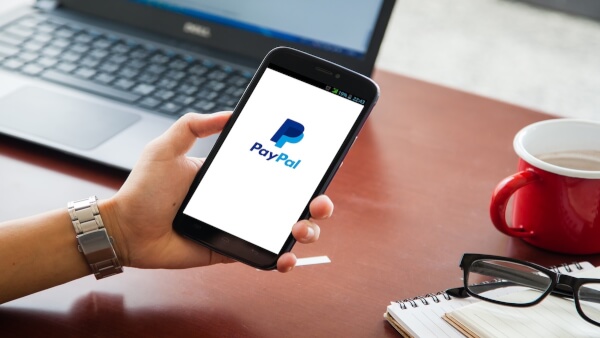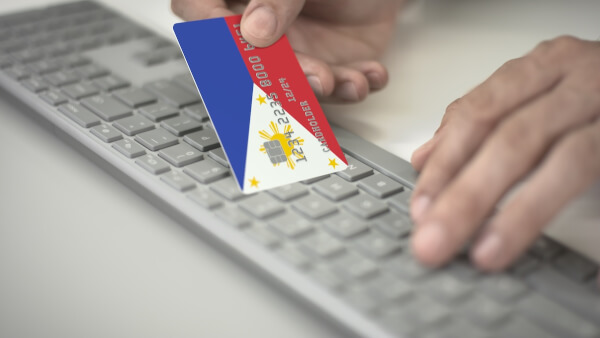PayPal review: Everything you need to know
Have a look at our PayPal review – an in-depth look at its main features, fees, and security to help you decide if it’s the right platform for you.

| This publication is provided for general information purposes and does not constitute legal, tax or other professional advice from Wise US Inc. or its affiliates, and it is not intended as a substitute for obtaining business advice from a Certified Public Accountant (CPA) or tax lawyer. |
|---|
The IRS and federal government are phasing out paper check tax refunds, effective September 30, 2025, accelerating a transition to faster, more secure digital payments.¹
The shift isn’t just about keeping up with the times; it’s aimed at improving efficiency, reducing fraud, and minimizing the risk of lost or stolen checks. While a limited number of taxpayers may still qualify for a paper refund check, most Americans will now receive their tax refunds through direct deposit or prepaid debit cards.
So, what does this mean for you at tax time — and what should you do if you still prefer a paper check? Here’s what you need to know as the old system fades out and a new era of tax refunds begins.
| Table of contents |
|---|
| This article has been written in collaboration with Katelynn Minott, CEO and Managing CPA at Bright!Tax US Expat Tax Services. |
|---|
With paper check tax refunds quickly becoming a thing of the past, most taxpayers will now receive their IRS or state refund through direct deposit.
Setting this up is straightforward: When you file your federal or state income tax return, you’ll simply provide your bank account and routing number.
| Direct deposit offers several advantages over traditional paper checks: |
|---|
| Faster access to your IRS tax refund: Direct deposit is usually the quickest way to receive your money |
| Added security: No risk of lost or stolen checks |
| Flexibility: Refunds can be deposited into checking or savings accounts, or even to a prepaid debit card |
The IRS recommends e-filing your tax return to speed up processing and reduce the chance of errors.² If you choose to file a paper return, be aware that it will likely take longer to process, and options for receiving a paper check are now extremely limited.
If you’re self-employed, filing with an ITIN instead of a Social Security number, or on an installment agreement, you can still use direct deposit — just make sure your account information is accurate and up-to-date. In some cases, additional verification may be needed, so keep an eye on your mail or IRS notifications if your refund seems delayed.
With paper check tax refunds largely phased out, there’s no need to watch the mailbox anymore. Now, you can keep tabs on your IRS or state refund online from start to finish.
The IRS’s “Where’s My Refund?” tool is your go-to resource.³ After you file your federal tax return, you can check your refund status using your Social Security number (or ITIN), filing status, and exact refund amount. Many state tax agencies offer similar online tracking tools.
| A few things can impact how quickly your refund arrives: |
|---|
| Account information: Double-check your bank account number and routing number when you file to avoid delays or misdirected deposits |
| Filing status: Some returns, especially those involving joint filings or changes in status, may take longer to process |
| Identification number: Using an ITIN instead of a Social Security number may require extra verification, which can affect timing |
If your refund is delayed, your prepaid debit card goes missing, or you need to update your bank details, reach out directly to the IRS or your state tax agency as soon as possible. Most issues can be resolved, but acting quickly will help get your refund moving again.
Even with digital payments, issues can pop up — delays, lost refunds, or funds sent to the wrong account.
If you’re waiting longer than expected, the first step is to check the status of your refund using the IRS’s “Where’s My Refund?” tool or your state tax website.
Here's a look at some common situations and what to do next:
| Refund sent to the wrong account | Contact your financial institution right away, then notify the IRS if the issue isn’t resolved |
| Need to update bank details or payment method | If a return has not been processed, you may be able to amend it, but if it has already been accepted or processed, you cannot change direct deposit info and may need to wait for a check to be mailed if the deposit fails |
| Tax credits and errors (EITC, etc.) | If your refund is delayed due to an Earned Income Tax Credit (EITC) or other tax credit issue, review any IRS notices carefully and provide any requested information |
For more complex issues, contacting the IRS directly — using the official phone numbers listed on IRS.gov — is the best course of action.
No matter what the tax year brings, staying proactive and responding quickly will help resolve most refund issues efficiently.
As the IRS and state governments move away from paper check tax refunds, digital payments are quickly becoming the new normal for taxpayers across the country.
For most filers, this means faster, more secure refunds and less waiting around for the mail. The transition may take some adjustment — especially if you’re used to traditional paper checks — but understanding the new process can make tax season smoother.
If you have questions about your refund status or need help navigating the changes, consult the official IRS website or your trusted tax advisor. In a digital-first world, a little preparation goes a long way toward making sure your tax refund arrives quickly and safely year after year.
Paying for your US taxes or receiving a tax refund can be tricky — the payment options are often slow and costly, and this doesn’t get better when you’re not in the country and/or manage different currencies.
Whether you’re a US expat, a resident alien, or you have a foreign business, Wise can be an excellent option. With a Wise account, you can either pay your taxes from abroad or receive your tax refund easily. And if you manage more than one currency, you’ll save a lot on exchange rate markups and conversion fees.
When you fill out your tax forms, use your Wise USD Account and routing numbers.
| 🎯 You can find them under “Account Details.” This will let you: |
|---|
|
Wise has no subscription fees or minimum balance requirements, and you can set up an account in minutes.⁴
You can send, receive, hold, and spend your money in multiple currencies, always with the real exchange rate, and with just a small and transparent fee.⁵
Get a Wise Account
in minutes 💰
 |
|
Sources
*Please see terms of use and product availability for your region or visit Wise fees and pricing for the most up to date pricing and fee information.
This publication is provided for general information purposes and does not constitute legal, tax or other professional advice from Wise Payments Limited or its subsidiaries and its affiliates, and it is not intended as a substitute for obtaining advice from a financial advisor or any other professional.
We make no representations, warranties or guarantees, whether expressed or implied, that the content in the publication is accurate, complete or up to date.

Have a look at our PayPal review – an in-depth look at its main features, fees, and security to help you decide if it’s the right platform for you.

Learn how to send money to the Philippines using Palawan Pawnshop service from the United States with ease and confidence in this step-by-step guide.

Learn how to send money to the Philippines using Cebuana Lhuillier service from the United States with ease and confidence in this step-by-step guide.

Explore WorldRemit vs Wise: a detailed comparison of their features, fees, security, and more to help you choose the best money transfer service.

Explore PayPal vs Wise: a detailed comparison of their features, fees, security, and more to help you choose the best money transfer service.

Read on for everything you need to know about sending and receiving international transfers at Walmart.